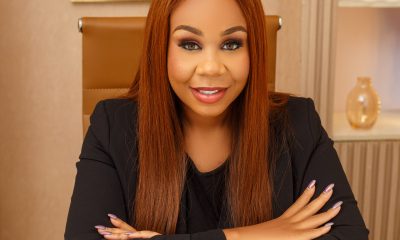Op-Ed
The Role Of Medical Legal Opinion In Potential Medical Negligence Matters

Written By: Dr Kim Lamont-Mbawuli & Adv Dennis Chamisa
There is a reluctance of doctors to testify against each other, compromising the necessary checks and balances within the medical profession. As such, obtaining a comprehensive expert opinion is important to safeguard the rights of all parties involved in legal matters.
Medical negligence is a complex and sensitive area of law that involves cases where healthcare providers are alleged to have breached their duty of care, resulting in harm to patients. In such cases, legal practitioners often require the assistance of medical experts to establish whether negligence occurred. This is where the crucial role of medico-legal experts in providing a necessary service to society in the form of a medico legal opinion is indispensable
In this article, we will explore why legal practitioners need a medical legal opinion in potential medical negligence matters.
Interpretation of Medical Records
One of the primary reasons why legal practitioners require a medical legal opinion in medical negligence cases is the interpretation of medical records. Medical records are crucial evidence that can determine whether a healthcare provider deviated from the standard of care. However, these records are often filled with complex medical jargon and abbreviations that may be difficult for lawyers to understand fully.
A medical legal opinion from a qualified expert can bridge this gap. Medical experts can review and interpret medical records, ensuring that all relevant information is considered. They can identify discrepancies, omissions, or irregularities that may indicate negligence, providing invaluable assistance in building a strong legal case.
Establishing Standard of Care
Medical negligence cases hinge on whether a healthcare provider breached the standard of care expected in a particular situation. Determining the standard of care requires specialized medical knowledge and experience. Legal practitioners often rely on medical experts to establish what a competent healthcare provider would have done under similar circumstances.
A medical legal opinion helps in defining and explaining the standard of care to the court and the jury. It allows legal practitioners to present a well-substantiated argument, demonstrating how the defendant’s actions or inactions deviated from accepted medical norms.
The Role of Expert Opinion in Courts
In medical negligence cases, expert witness testimony is often crucial. Legal practitioners need medical experts to testify about the standard of care, causation, and the extent of the patient’s injuries. These experts can provide objective, professional opinions that carry significant weight in court.
A medical legal opinion serves as the foundation for expert witness testimony. It allows the expert witness to provide a well-informed and credible account of the case, helping the judge and jury understand the medical complexities involved.
The test applied by South African courts to evaluate expert evidence in medical negligence cases.
South African courts employ a test akin to that utilized in numerous other common law jurisdictions to gauge the significance of expert testimony in medical negligence cases.
This test, as articulated by the Supreme Court of Appeal (SCA) in the case of Michael and Another v Linksfield Park Clinic (Pty) Ltd and Another 2001 (3) SA 1188 (SCA) at paragraph 34, emphasizes the role of the court in evaluating expert opinions. The court held:
“In the course of the evidence, counsel often inquired of the experts whether certain conduct was reasonable, unreasonable, or negligent. The presiding judge was not swayed by this into relinquishing his decision-making responsibility. Nor, we believe, did counsel intend for that to happen. However, it is worth reiterating that the determination of reasonableness and negligence is the purview of the court itself, based on the array of sometimes conflicting expert opinions presented. Typically, this determination does not hinge on matters of credibility but rather necessitates scrutinizing the opinions and their underlying reasoning to facilitate the court’s formation of its own conclusions on the raised issues.”
In this specific case, experts were not solicited, nor did they endeavor, to express a collective or representative perspective regarding what constituted reasonable conduct for a South African specialist anesthetist in 1994. The court expressed its frustration at the experts called, asserting that they did not offer a ‘collective or representative opinion’ on how a reasonable anesthetist would have responded under identical circumstances. Furthermore, it raised concerns that the primary function of the experts summoned was more akin to ‘teaching.’
The court pointed out the ‘absence of evidence’ pertaining to customary practices within the specific field and underscored that the assessment of such evidence should revolve around the extent to which the opinions put forth are grounded in logical reasoning. The court also referenced the House of Lords ruling in Bolitho v City and Hackney Health Authority [1998] AC 232, stating that the court is not obligated to absolve a defendant doctor of liability for negligent treatment or diagnosis solely on the basis of the concurrence of multiple medical experts. Instead, the court must ensure that such opinions have a ‘logical basis,’ implying that the expert considered the relative risks and benefits and reached a ‘defensible conclusion’ (at 241G-242B).
The court went on to emphasize that even in instances where the professional opinion asserts that overlooking an apparent risk is not negligent, the defendant can still be held accountable (at 242H). Furthermore, the court contended that courts must rely on expert opinions to assess medical risks and benefits and that the court would be incapable of making clinical judgments without the guidance of medical experts. “It is only when a judge is convinced that the body of expert opinion lacks any logical support that such opinion will not serve as the benchmark against which the defendant’s conduct is to be assessed” (at 243A – E).
This fundamental distinction between the scientific and judicial standards of proof was eloquently underscored by the House of Lords in the Scottish case of Dingley v The Chief Constable of Strathclyde Police 2000 SC (HL) 77, which issued a caution:
“One cannot completely dismiss the risk that by immersing oneself in the minutiae and attempting to comprehend the thought processes of the experts, a judge may be drawn into a situation where he employs the standards the expert would use to determine whether a particular thesis has been proved or disproved – instead of conducting an assessment, as a judge must, of where the preponderance of evidence lies after considering the entire body of evidence.”
The Western Cape High Court judgment in Kosana v MEC for Health (WCC) (unreported case no 9230/2005, 23-1-08) (Erasmus J) further expanded on this concept. The court invoked a passage from the Appellate Division judgment in Van Wyk v Lewis 1924 AD 438 at 444 and expounded in paragraph 36:
“When appraising the level of skill and diligence possessed and exercised by members of a specialized profession (the responsible group of medical practitioners skilled in the particular field), ‘the evidence of qualified surgeons or physicians is of the greatest assistance.'”
The court then drew from the judgment in Maynard v West Midlands Regional Health Authority [1984] 1 WLR 634 at 639:
“I must emphasize that a judge’s ‘preference’ for one body of distinguished professional opinion over another, also professionally distinguished, does not suffice to establish negligence in a practitioner whose actions have garnered approval from those whose opinions, honestly expressed and genuinely held, were not favored. In the realm of diagnosis and treatment, negligence can only be established if there has been a failure to exercise the ordinary skill of a doctor (within the relevant specialty if they are a specialist).”
The court also cited the Bolitho case, in which it was declared:
“The evaluation of medical risks and benefits is a matter of clinical judgment that a judge typically cannot undertake without expert evidence. As Lord Scarman’s quote makes clear, it would be erroneous to allow such an evaluation to degrade into an attempt to persuade the judge to favor one of two views, both of which can be logically supported. Only when a judge is convinced that the body of expert opinion lacks any logical support will such opinion not serve as the benchmark against which the defendant’s conduct is to be assessed.”
In Honisz v Lothian Health Board [2006] CSOH 24, paragraph 39, the Scottish court, relying on the Bolitho case, elucidated:
“As a general rule, when there are two conflicting schools of thought within the relevant group of responsible medical practitioners regarding the appropriateness of a particular practice, it is not the role of the court to favor one school over the other (Maynard v West Midlands Regional Health Authority, Lord Scarman, p 639F-G). Nevertheless, the court does not unconditionally defer to the opinions of the relevant professionals to the extent that, if a defendant presents evidence that other responsible professionals within the relevant group of medical practitioners would have taken the same actions as the impugned medical practitioner, the judge must invariably conclude that there was no negligence. This is because, thirdly, in extraordinary cases, the court may conclude that a practice endorsed by responsible medical practitioners does not withstand rational scrutiny (Bolitho v City and Hackney Health Authority, Lord Browne-Wilkinson, pp 241G-242F, 243A-E). When the judge is satisfied that the body of professional opinion on which a defendant relies is unreasonable or irresponsible, he may find the medical practitioner guilty of negligence, despite the endorsement of his conduct by that body of opinion.”
In Conclusion
The evaluation of evidence based on expert-based knowledge is a catalyst for justice vis-a-vis the standard integrity, logic and comprehensive knowledge and experience in the area concerned. In the realm of medical negligence, legal practitioners rely on medical legal opinions to navigate the complex and intricate intersection of law and medicine. These opinions are invaluable for interpreting medical records, establishing the standard of care, assessing causation, and providing expert witness testimony. Whether the case goes to trial or is settled outside of court, a medical legal opinion is often the linchpin that determines the outcome. It ensures that justice is served by holding healthcare providers accountable for their actions and ensuring that patients receive fair compensation for their injuries.
Feel free to contact Dr Kim Lamont-Mbawuli at Kim@klmattorneys.co.za for your medical legal opinions
Op-Ed
People are not a pillar: It’s time to invest in potentialising people

By Savina Harrilall, Chief People Officer at Mukuru (Image: Supplied)
The Harvard Business Review describes the secret of corporate success as ‘human magic’. A culture that creates a space within which people thrive and where their ambitions, passions and commitment translate into productivity, results and shared growth. It is also an essential investment into the business at a time when people are feeling invisible and stressed amidst a storm of geopolitical and economic instability. The International Monetary Fund report released halfway through 2024 found that while global growth looks relatively stable on the surface, there are undercurrents affecting overall positivity and momentum.
The world is, as the report describes, in a sticky spot. And people do not work in isolation of these undercurrents. Gallup found that 20% of the world’s employees are lonely, engagement is stagnating and overall well-being is on a decline. The cost of this disengaged, deflated workforce, says the company, is in the region of $8.9 trillion and approximately 9% of the global gross domestic product (GDP). Employees are also feeling replaceable.
The American Psychological Association (APA) shows that the mercurial economic, social and political environments are influencing employee decision-making and needs. Employees are increasingly seeking stability, well-being, and meaning in their work. Unfortunately, the lingering effects of the pandemic continue to destabilize organisational foundations. As a result, both companies and employees are grappling to regain their equilibrium.
Defining employee potentialising
People are not a pillar within the business, they are its foundation. If they are committed, engaged and supported, then they deliver that elusive magic and bring their energy that can ignite a company’s culture. And ticking all of these boxes comes down to leadership. The environment follows the leader – people will want to give more, be more and create more if they feel that they are working within a company that values their potential, and recognises their worth.
Potentialising employees means measuring the success of a business against the success of its people. Your business can invest in all of the right baseline tools such as leadership enablement, benchmarking, and referencing against people practices, but if you’re not actually putting people at the centre of these conversations, you’re not prioritising their potential. People don’t want to hear about benchmarks and metrics and standards – they’re important, sure, but people want to hear about the people-things. They want to know what your business is doing to enable their success. This takes people-centricity a level up.
At Mukuru, we have spent time building our foundations so we can embrace the concept of potentialising the employee. We have the compliance, the certifications and the standards – for example, we did not publicise being BB-BEE compliant for the first time in 20 years, not because it is not newsworthy, but rather because we understand and see this as a step towards unlocking opportunities for our people. It is how we ensure we continue to create employment opportunities and expand the skillsets of employees and potential employees, thereby supporting the growth of our current and future talent.
Redefining people within growth
Mukuru is driving commercial outcomes by prioritising our interactions with people, both inside and outside the organisation. Every person within the company is skilled and a leader of their own roles, and masters of their destinies. Recognising their individuality and embracing diversity, enables the cultivation of spaces where our people can thrive. This, in turn, enhances our interactions with customers. Happy employees lead to satisfied clients, and happy customers make for a successful business.
Creating a psychologically safe space for employees ensures that people feel they truly belong. As a recent Harvard Business Review study into the value of human-centred leadership found, employee fulfilment rests on the foundations of leadership, recognising the individual, and meeting unique needs. Levelling up on servant leadership is heart leadership. Heart leadership champions empathy and elevates humanity and authenticity, where leaders relate to employees by investing, empowering and caring for them. This is the secret sauce to potentialising.
The myth of a 9-to-5 model to drive employee productivity must be shattered once and for all, and in its place, we need flexible work environments that align employee and organisational needs – building spaces that allow people to thrive. Nobody needs to be perfect. None of us are perfect. Nobody needs to fit a specific mold. We need to smash the mold and elevate uniqueness. The primary goal, particularly at Mukuru, is to inspire people to fully embrace their authentic selves in their roles while fostering a culture of mutual respect and civility.
When the organisation prioritises and shows up for its people, the people become motivated to invest in themselves and wholly show up for the organisation. And this synergy is when it truly discovers the value of potentialising its employees.
Health
Dr. Jesupelumi Adenihun: Adopting a lifestyle of sustainable health practices with food

Dr. Jesupelumi O. Adenihun (Image: Supplied)
You have likely heard the saying, “You are what you eat,” and it couldn’t be truer. What we consume plays a far greater role in our health than many of us realize. Over time, our eating habits can either support our body’s natural healing processes, leading to improved health and vitality, or contribute to nutrient deficiencies, inflammation, and even chronic diseases.
What this means is, our eating habits over time sets off a series of chain reactions in our bodies that impact our overall well-being. The good news, however, is that by consistently making the right food choices, we can put ourselves on the path to a state of good health and well-being. While this might sound daunting at first, it is often the small, consistent actions that yield the best results. Let’s take a look at 10 simple but effective habits you can begin to cultivate for better health and adopt as lifestyle practices:
- Substitute soda with water: No beverage is more refreshing or beneficial than plain water. It hydrates, cleanses, and confers numerous health benefits.
- Snack on nuts and seeds: When you are craving a snack, go for nuts or seeds, unless you have an allergy. They are nutrient-dense and can also be satisfying.
- Opt for grilled or baked over fried: Choosing grilled or baked foods helps reduce unhealthy fat intake without compromising on flavor. This also helps reduce the risk of developing high cholesterol levels which is a cardiovascular risk.
- Enjoy homemade smoothies over sugary drinks: When time permits, make homemade smoothies making use of reliable recipes. If you are short on time, consider vendors who provide fresh, nutrient-packed options.
- Practice mindful eating: Mindful eating means being fully present during meals, savoring each bite, and listening to your body’s signals. Eating mindfully is a game changer for a lot of people.
- Be well-informed about what you consume: Whether it’s food or drinks, it is essential that you stay conscious of what’s in your food and drinks. Many packaged products contain hidden sugars that the body doesn’t exactly need. Always take a moment to check the ingredients.
- Add more vegetables to your plate: Think beyond the usual veggies—some varieties exist which also depends on your geographical location. Be open and willing to explore new options and add color to your meals.
- Prioritize lean proteins: Not all proteins are created equal. Make lean protein choices and consider plant-based options to support your overall health.
- Use natural spices over salt-laden seasonings: High salt intake is known to be a contributor to heart-related conditions like hypertension. Opt for natural herbs and spices to add flavor without carrying on health risks.
- Stay physically active: Find an activity you enjoy and can commit to, whether you are at home or on the go. Consistency is key. Also seek the counsel of a coach if you need to.
Remember, true wealth lies in your health. Let each meal choice you make be a step toward a healthier, more vibrant life. Eat to wealth, health is wealth.
Written By: Dr. Jesupelumi O. Adenihun (Nutrition Coach, Preventive health care specialist).
Legal Business
Morenike George-Taylor: The fundamental term to include when raising investment

Morenike George Taylor, Founder Reni Legal Consulting | County Support Consulting (Image: Supplied)
I remember a pivotal moment in my career that taught me a profound lesson about the importance of securing sufficient funding for a project. It all started when my team and I were working on an ambitious venture, a hotel to be located in Lekki, a high brow area in Nigeria. After months of planning, I found an investor who was excited about the potential. He assured me that he would provide the necessary funds to bring our vision to life.
Initially, the investor invested a portion of the money, which gave my team and I a glimmer of hope. With that commitment, I felt a surge of confidence. We began allocating resources, hiring a team, and setting timelines. Everything seemed aligned for success.
However, as we progressed, the promises began to wane. The investor started delaying further payments, citing various reasons that ranged from market fluctuations to unforeseen personal issues. Each time I reached out for updates, I was met with assurances that the funds would come through soon. Then, midway through the project, the investor informed me that he could no longer fund the project.
This sudden withdrawal created a domino effect. We had already committed to other businesses that were relying on our funding to get started. As the primary business was still in development, those secondary businesses began to pressure me for repayments. They had their own obligations, and without the promised funds, they found themselves in a precarious position. It was an overwhelming situation, and I watched helplessly as relationships soured and trust evaporated.
The main business, which had so much promise, struggled to survive. Without the necessary capital, we couldn’t complete our operations or deliver our product to market. As the financial strain mounted, it became clear that our venture was on the brink of collapse. Ultimately, the business we had worked so hard to build didn’t make it.
This experience was a harsh but invaluable lesson. It underscored the critical importance of raising sufficient funding before embarking on any ambitious project and how this needs to be taken into consideration in any contract documentation you sign. If I had tied all our contracts and obligations to the complete funds being raised, we could have safeguarded our operations against such unforeseen circumstances.
This experience taught me that in business, clarity and preparation are paramount. Without sufficient funding, dreams can quickly turn into nightmares, and projects that hold so much promise can fade away before they even have a chance to succeed
In the world of business, securing adequate funding is crucial for success. Particularly, if you require $1,000,000 for example to execute your vision, it is essential to raise that exact amount and tie all your contracts to this figure, especially concerning repayment terms. This approach ensures that your business can commence operations without financial strain.
When you set out to raise capital, clearly defining your financial needs is the first step. If you determine that your project requires $1,000,000, raising exactly that amount helps avoid unnecessary complications. Insufficient funding can lead to a cascade of operational issues, including delays, inability to meet contractual obligations, and ultimately, project failure. By securing the full amount, you create a solid foundation for your business operations.
Tying your contracts to the $1,000,000 funding goal is a strategic move. This means that all agreements—whether with investors, lenders, or partners—should explicitly state that the commencement of business activities, as well as repayment obligations, are contingent on successfully raising this amount. If the funding goal is not achieved, the repayment terms should reflect that the business cannot commence. This protects you and your stakeholders from the risks associated with undercapitalization.
By ensuring that all agreements explicitly stated that the project’s commencement and the repayment terms hinged on successfully raising that target amount, we would have mitigated the risks of undercapitalization. It became clear to me that having a well-structured funding strategy is not just a financial necessity; it’s essential for operational stability and long-term success.
Now, I always emphasize to entrepreneurs the importance of securing the full amount required before diving into a project. A well-capitalized venture is not just better positioned to navigate challenges; it can seize opportunities and grow sustainably.
About the author:
Morenike is an award winning business strategist and the founder of Reni Legal Consulting and County Support Consulting. She operates as a business consultant across various sectors, leveraging her extensive expertise to provide strategic insights and tailored solutions. With a keen understanding of the complexities of different industries, she helps organizations navigate challenges and seize opportunities for growth.
As a qualified lawyer, Morenike combines her legal knowledge with a strong foundation in data management, agile methodologies, and risk management. She is a certified Data Management Professional, a Disciplined Agile Scrum Master, and a Risk Management Professional. This diverse skill set allows her to approach each consulting engagement with a comprehensive perspective, driving operational efficiency and fostering organizational success.
-

 Afripreneur3 days ago
Afripreneur3 days agoMeet Datari Ladejo, the digital strategist helping brands thrive in the digital economy
-

 Afripreneur10 hours ago
Afripreneur10 hours agoCreativity, Data, and Innovation: Tutu Adetunmbi’s Vision for Africa’s Marketing Future with Stamfordham
-

 Press Release1 day ago
Press Release1 day agoThe 234 Venture Vault Launches Tech Startups and Talents Hunt Across Nigerian Tertiary Institutions
-

 Afripreneur9 hours ago
Afripreneur9 hours agoMeet Nzinga B. Mboup, a Senegalese architect committed to climate-friendly construction for African cities













